Forced marriages: In Kashmir, old habits die hard
Despite laws barring the practice, forced marriages flourish in the state; most victims are British-Kashmiri women.
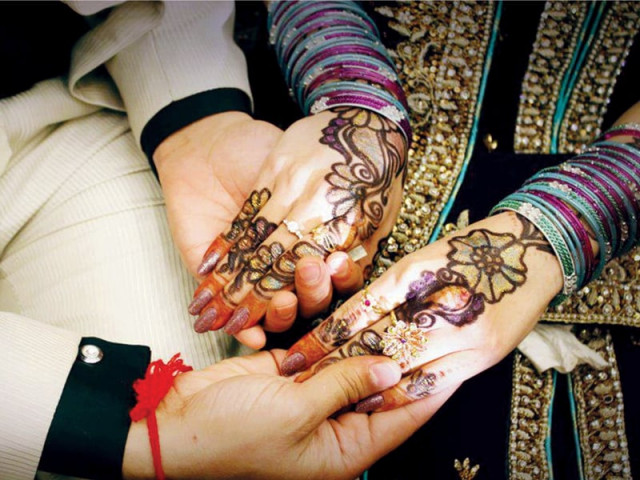
Some legal support is available in Pakistan, but rights campaigners say only a minority get support. PHOTO: IRIN
From a distance, Jalila Ahmed* and Nabila Ahmed* look like ordinary village girls in their late teens, shopping at the local bazaar in a Mirpur suburb.
But move in a little closer, and the differences are more obvious — they struggle to communicate with the vendors, sometimes giggling between themselves as they try to find a name for a particular vegetable. When they speak to each other, they do so in English, with an accent closer to Bradford than Bagh. But they are careful, because they have been told not to talk to each other.

The two teenagers, distant cousins, say they were both forced into marriages a year ago, after being brought to Mirpur from the UK to “attend a family wedding.” It was only after they arrived in the city that they discovered the marriages they were attending were their own, both to distant relatives.
Hundreds of cases of forced marriage involving British nationals married against their will in Kashmir are thought to take place annually, particularly around the industrial town of Mirpur. Since the late 19th century, Kashmir has had a large diaspora — estimated to be around one million — with many communities concentrating in British cities like Bradford, Glasgow and London.
To preserve their culture and traditions, some families favour sending their children — particularly daughters — back to Kashmir.
Campaigners say such marriages are cruel, leading to “murders and chaos”, either because couples fail to get along or when young women resist. Shafilea Ahmed, 17 at the time of her murder nine years ago in the UK, was the victim of one such crime, which made headlines when her parents were brought to trial.

“We hear of around 300 cases of such marriages annually, though many more may actually take place,” Khalida Salimi, executive director of the NGO Struggle for Change, told IRIN. She said most “but not all” cases involved girls. Thousands of those forced to marry remain in Kashmir, she said.
“This is a cultural practice. Families want to marry their children to the offspring of relatives as they believe they will prove to be good partners for them,” said Salimi.
She said that economic factors were also involved, either to keep wealth within families or because once a Pakistani man marries a UK national he can go to Britain to get a well-paid job. “This is the most common reason for such marriages,” she said.
“Ceaseless nightmares”
“I was a victim 25 years ago,” said Uzma Bibi, who lives with her adult son in Lahore, but frequently travels to the UK. “It was a terrible experience. I was only 15. I was told we were going on a family holiday to Kashmir, and instead was married to a cousin far older than me.”

Uzma’s husband died a year ago. “While he was not a bad man, the years in ‘captivity’ have scarred me for life,” she said. She regularly see a psychiatrist to help cope with what she says are her “ceaseless nightmares.” She also knows at least a dozen women who face similar situations today.
Other women have made dramatic escapes, using the internet to seek help from the British High Commission or hiding spoons in their underwear to set off airport metal detectors, giving them an opportunity to speak to authorities.
Staff at the UK’s Forced Marriage Unit (FMU) said they dealt with 1,485 cases of possible forced marriage in 2012, with 47.1 percent of these involving Pakistan, and most of these were from Mirpur.
Illegal
Laws in Pakistan bar forced marriage, said Salimi, while the practice is also regarded as a form of slavery by organisations dealing with such abuses. As awareness grows, attempts to dissuade parents from forcing children into marriage have grown.

“Marriages of this kind are totally against Islam,” said Maulana Shafiq Salim, a cleric in Mirpur. “But we all know they continue to take place, and it is saddening to see these young girls, some mere children, deluded by their own parents.” He said he himself refused to formalise such marriages, but said “other clerics did.”
“Changing attitudes is not easy,” Aziz Butt, a banker in Mirpur, told IRIN. “My brother, based in Manchester, wants me to find a match for his 16-year-old daughter here, in Kashmir, even though I keep telling him it is no longer the custom to marry off girls so young, that she should be studying and should have a say in her own marriage.” He said his brother wanted to “prevent my niece from moving away into an alien culture by marrying her to someone here.”
Some legal support is available in Pakistan, but campaigners say only a minority get support.
“Only a small percentage of the many cases of forced marriage that take place are reported to us,” said Asma Ali Shan, a law officer at the government-run Benazir Bhutto Shaheed Women’s Development Centre, Mirpur.
“We offer legal support, shelter and counselling if required, but what we need is raised awareness to prevent such marriages in the first place.”
*Names changed to protect identity
Published in The Express Tribune, November 25th, 2013.

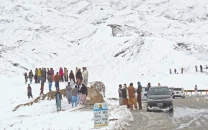

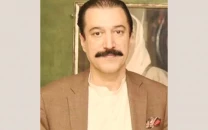
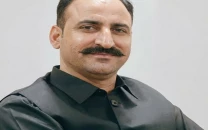

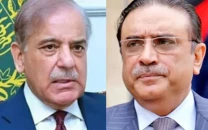











COMMENTS
Comments are moderated and generally will be posted if they are on-topic and not abusive.
For more information, please see our Comments FAQ